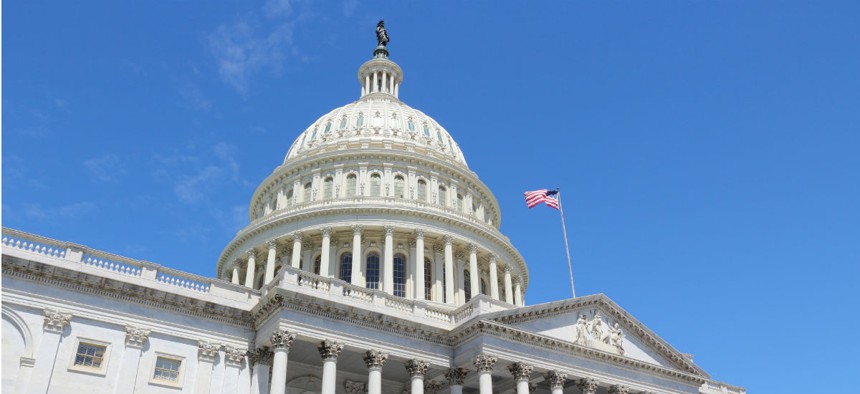House Passes Bills to Further Review Regulations, Reduce Agency Advocacy
Opponents say measures amount to a gag order on federal agencies.
President Trump has issued two executive orders and one memorandum aimed at inhibiting federal agencies from issuing new regulations and enforcing those already on the books, but those efforts have not done enough to satisfy congressional Republicans.
The House this week passed three bills aimed at reducing federal agencies’ regulatory agendas, approving both forward- and backward-looking measures. On Thursday, the House backed mostly along party lines the Regulatory Integrity Act to prevent agencies from advocating on behalf of their proposed rules. The bill would prohibit federal employees from engaging in propaganda to support potential rulemaking, as well as requesting others to engage in advocacy on their behalf.
It would attempt to boost transparency in the rulemaking process by requiring agencies to post online any pending regulations, as well as any public communications they made during the proposed rule stage. Agencies would have to report to Congress on their communications and messaging efforts.
Rep. Jason Chaffetz, R-Utah, who chairs the House Oversight and Government Reform Committee, called the measure “good government legislation” that would help fight against agencies that “tip the balance in their favor by actively campaigning for the support of certain rules.”
On Wednesday, the House approved the Searching for and Cutting Regulations that are Unnecessarily Burdensome (SCRUB) Act, which would follow on Trump’s call for agency task forces to root out unnecessary regulations by creating a governmentwide commission to identify duplicative and outdated rules. The Retrospective Regulatory Review Commission would examine rules in place for at least 15 years with the goal of reducing the costs of regulations by 15 percent with a “minimal reduction in the overall effectiveness” they have. The commission would terminate five years after it first meets and make recommendations to Congress on regulations to eliminate.
Also on Wednesday, the House passed the Office of Information and Regulatory Affairs Insight, Reform and Accountability Act, which would codify OIRA’s authority. The unit is housed with the Office of Management and Budget and was created by a Reagan executive order. The legislation would also significantly expand OIRA’s responsibilities by requiring it to review major rules issued by independent regulatory agencies, such as the Securities and Exchange Commission.
Despite the potential overlap with Trump’s order, his administration appeared to support the legislation.
“The administration appreciates the efforts of the Congress to rationalize the regulatory system and looks forward to continuing to work together to reform the regulatory process,” the White House said in a statement of administration policy.
Public Citizen, a health and safety advocacy group, condemned the bills, saying they would ignore the public benefits of regulation, require agencies to prioritize corporate profits over the public and institute a gag order on agencies making it difficult for them to “communicate with the public about their work.”
NEXT STORY: Jeff Sessions Recuses Himself








